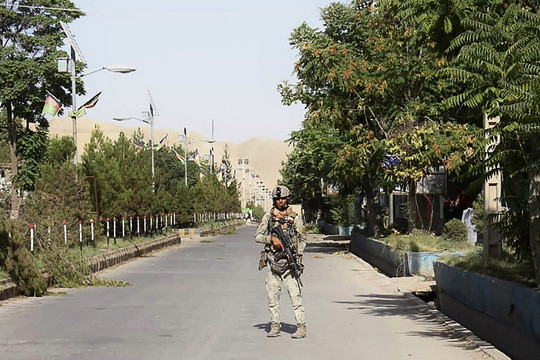The attack on Qala-e-Naw, in the northwest Badghis province, is the first assault on a provincial capital since the United States began withdrawing its troops from Afghanistan. The United States plans to withdraw all troops by August 31. According to reports from IFJ’s affiliate, the Afghanistan Independent Journalists’ Association (AIJA), the Taliban threatened at least eight media outlets during the attack including Badghis National Radio and Television, Private TV Obur, Radio Hanzaleh, RadioSimim, Ghazali Radio, Radio Nariman, and Baghis Voice Radio. Afghanistan troops reclaimed the city on June 8.
AIJA reported to the IFJ that most journalists left the city during the attack, and Taliban spokesman Zabihullah Mujahid sent an audio message to the media saying media and journalists would not be harmed. The Taliban also said journalists were useful and instructed them to behave and cooperate if confronted.
AIJA reported that Radio Darman in the Aqcha district of the northern Jawzjan province and Radio Tanin in the Shindand district of the northwestern Herat province were recently under Taliban control for almost two days. During this time, the radio stopped broadcasting.
The IFJ said: “The Taliban’s assault on Qala-e-Naw left media displaced, leaving them vulnerable to further attacks. The IFJ calls on the Taliban to respect the media’s role in protecting independent journalism and allow a peaceful transition in the region as the United States withdraws troops.”

